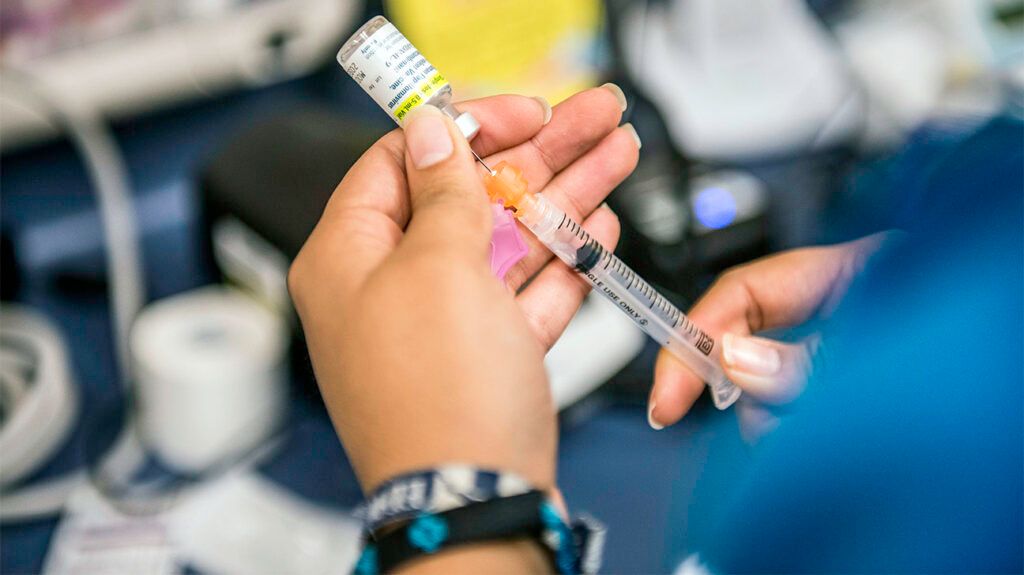The best time for human papillomavirus (HPV) vaccination is before a person has exposure to HPV. However, people may benefit from receiving the vaccine after HPV exposure, as it protects against multiple strains of HPV.
This article explores whether the HPV vaccine is suitable for someone who already has HPV, who should receive the vaccine, and its potential side effects and benefits.
A note about sex and gender
Sex and gender exist on spectrums. This article will use the terms “male,” “female,” or both to refer to sex assigned at birth. Click here to learn more.

According to the Centers for Disease Control and Prevention (CDC), in the United States, in 2018, there were
There are different strains, or types, of HPV. Some can increase a person’s risk of developing certain cancers, including cervical cancer, vulvar cancer, and penile cancer. Other strains of HPV can cause genital warts. The HPV vaccine helps protect people against nine of the highest-risk HPV strains.
This vaccine is
The CDC recommends that anyone with HPV should still receive the vaccine if they are
Most females who receive a positive test result are not positive for all nine strains of the virus that the vaccinations protect against. In some instances, a person’s doctor may recommend a person receive the vaccine if they have not already, even if they are sexually active already.
Most HPV transmission occurs during the early stages of a person’s sexual activity.
However, if someone becomes sexually active at an older age, they may still be able to receive the vaccine. The vaccine has received approval for people up to 45 years old. An individual should speak with their doctor about their suitability for receiving the vaccine if they are aged 26–45 years.
The CDC recommends that
If someone is older than 26 years, has not received the HPV vaccine, and may be at risk of the HPV virus transmitting to them, a doctor can advise as to whether the vaccine may be suitable for them.
According to the National Cancer Institute, scientists have studied the effects of the HPV vaccine for
Since 2016, Gardasil 9 is the only HPV vaccine that people can receive in the United States. Researchers have studied the safety of Gardasil 9 in
The side effects of HPV vaccine are mild and similar to those of any vaccine,
- soreness around the injection site
- localized swelling around the site
- nausea
- headache
- fever
- fatigue
- dizziness or fainting, in some cases
Falls due to fainting may potentially cause serious injury, especially if a person experiences a head injury. Because of this, the CDC advises healthcare professionals to have anyone receiving a vaccine remain sitting or lying down under observation for
The key benefit of the HPV vaccine is that it protects against nine high risk types of the virus, some of which cause cancer. Each year, in the United States,
The vaccine is also extremely effective at preventing external genital warts. If a high number of the population receives the vaccine, this also helps reduce the transmission rates of HPV.
The CDC recommends people receive the HPV vaccine when they are aged
The HPV vaccine protects against nine of the highest risk strains of HPV. Research has proven the HPV vaccine to be both safe and extremely effective.
A person may be able to receive the vaccine up to the age of 45 years. Anyone wishing to receive an HPV vaccination after the age of 26 years, or anyone who already has HPV, should speak with their doctor about their suitability.
